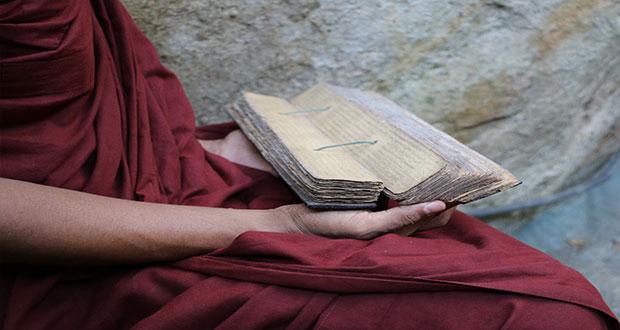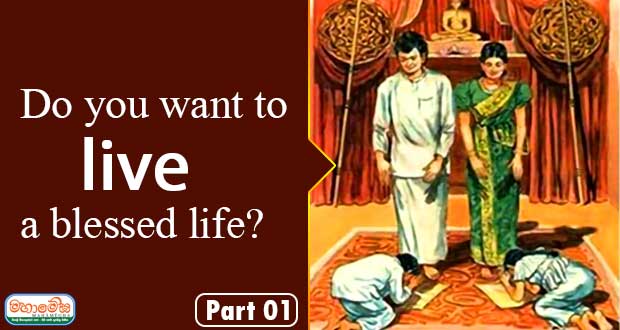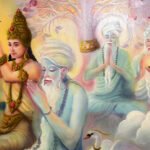Human beings, by nature, like many other animals, are social creatures. We live in a society and with the society. We socialize with friends, friends of family members, colleagues, peers, children’s friends’ parents and many others. We chat with random people as well, for example; cashier at the supermarket, person you sit next to in a ten hour journey, online chat rooms etc. However, how can we know about a person? How can we decide whether he or she is worthy to be our close friend? Because people we choose to associate close with have a direct influence on our personality. The omniscient teacher, the supreme Buddha explained in Sappurisa Sutta of Anguttara Nikaya a simple way to identify person of integrity, honorable person, person worthy to be associated with.
“Monks, a person endowed with these four qualities can be known as ‘a person of no integrity.’ Which four?
A person of no integrity, when unasked, reveals another person’s bad points. When asked, when pressed with questions, he is one who speaks of another person’s bad points in full & in detail, without omission, without holding back. Of this person you may know, ‘This is a person of no integrity.’
Then again, a person of no integrity, when asked, does not reveal another person’s good points. When asked, when pressed with questions, he does not speak of another person’s good points in full and in detail. Instead he omits good points and holds back. Of this person you may know, ‘This is a person of no integrity.’
Then again, a person of no integrity, when asked, does not reveal his own bad points. When asked, when pressed with questions, he conceals his own bad points, does not reveal in detail. He speaks with omissions, holding back. Of this person you may know, ‘This is a person of no integrity.’
Then again, a person of no integrity, when unasked, reveals his own good points. When asked, when pressed with questions, he speaks of his own good points in full & in detail, without omissions, without holding back. Of this person you may know, ‘This is a person of no integrity.’
Monks, a person endowed with these four qualities can be known as ‘a person of no integrity.’
Now, a person endowed with these four qualities can be known as ‘a person of integrity.’ Which four?
A person of integrity, when asked, does not reveal another person’s bad points. When asked, when pressed with questions, he speaks only a little of another person’s bad points, not in detail, with omissions, holding back. Of this person you may know, ‘This is a person of integrity.’
Then again, a person of integrity, when unasked, reveals another person’s good points. When asked, when pressed with questions, he speaks of another person’s good points in full & in detail, without omissions, without holding back. Of this person you may know, ‘This is a person of integrity.’
Then again, a person of integrity, when unasked, reveals his own bad points. When asked, when pressed with questions, he speaks of his own bad points in full & in detail, without omissions, without holding back. Of this person you may know, ‘This is a person of integrity.’
Then again, a person of integrity, when asked, does not reveal his own good points. When asked, when pressed with questions, he speaks little of his own good points, not in full, not in detail, with omissions, holding back. Of this person you may know, ‘This is a person of integrity.’
Monks, a person endowed with these four qualities can be known as ‘a person of integrity.'”
Sappurisa Sutta – Anguttara Nikaya
However, since the noble Dhamma should always be used to develop ourselves, we can use this noble Sutta to identify our flaws; to what extent do I have these qualities and am I a person of integrity? And if not we can learn how to become a person of integrity…how to become a person who noble ones considered to be honorable and worthy.
MAHAMEGHA 2015 Adi Esala Issue
WWW.MAHAMEGHA.LK
By Prajapathi Jayawardene











Recent Comments